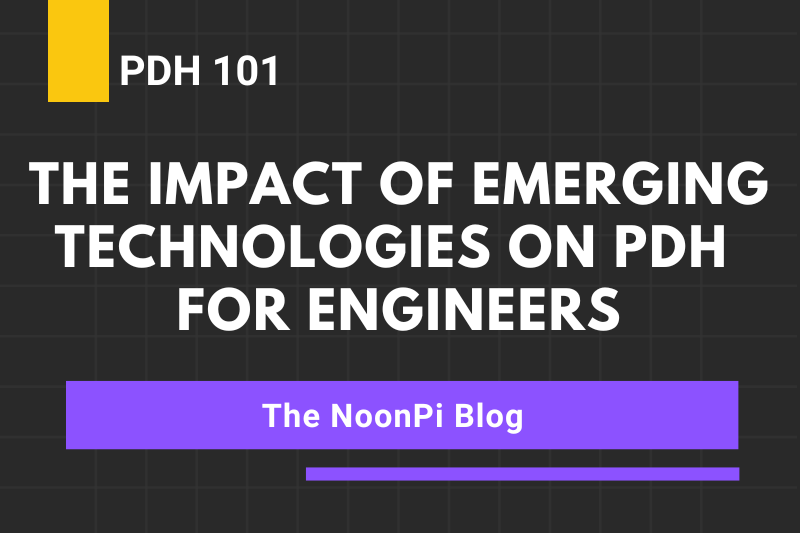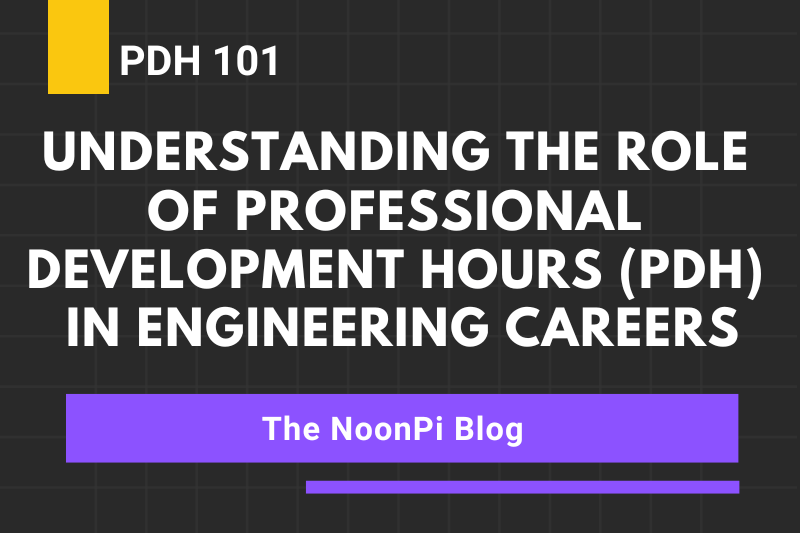Emerging technologies are transforming the world as we know it, and the field of engineering is no exception. Innovations such as Artificial Intelligence (AI), the Internet of Things (IoT), and renewable energy systems are revolutionizing the engineering landscape. As a result, these advancements significantly impact the type of Professional Development Hours (PDH) courses engineers should consider to stay abreast with these changes. This blog post explores the crucial role of emerging technologies in shaping PDH for engineers and how staying current with these trends can contribute to fulfilling PDH requirements and professional growth.
Emerging Technologies Reshaping the Engineering Landscape
In the past few years, we’ve seen the rapid proliferation of AI, IoT, and renewable energy systems. AI is optimizing design processes, predictive maintenance, and enhancing safety in the engineering field. Simultaneously, IoT is streamlining data collection and analysis, enabling engineers to monitor systems remotely and improve efficiency. Renewable energy systems, on the other hand, are revolutionizing the energy sector, requiring engineers to develop new skills to design, implement, and manage sustainable energy solutions.
Given these transformations, engineers must update their skills and knowledge to stay competitive, making these areas crucial for PDH.
The Role of Emerging Technologies in PDH
The rise of these technologies has led to an increasing demand for PDH courses focusing on these areas. These courses allow engineers to understand the fundamental concepts, applications, and implications of these technologies in their field. Let’s delve a bit deeper into each area:
- AI for Engineers
PDH courses in AI can provide engineers with insights into machine learning algorithms, predictive modeling, and automation, equipping them with the skills to leverage AI in their work. Whether it’s about optimizing processes or analyzing complex data sets, a firm understanding of AI can be a significant asset for engineers. - IoT in Engineering Practice
PDH courses focused on IoT can help engineers understand the integration of interconnected devices, data analytics, and network security. This knowledge is vital for engineers working in sectors like manufacturing, transportation, or infrastructure planning, where IoT is increasingly used for efficient operations. - Renewable Energy Systems
With the growing emphasis on sustainable solutions, PDH courses on renewable energy systems are becoming more critical. These courses might cover topics like solar energy, wind power, energy storage systems, and grid integration, preparing engineers for the transition to sustainable energy solutions.
Staying Current with Technology: A PDH Imperative
For engineers, staying up-to-date with emerging technologies is not a choice but an imperative. It’s about staying relevant, delivering value in their jobs, and shaping their career trajectory. By integrating courses in AI, IoT, and renewable energy systems into their PDH, engineers not only fulfill their PDH requirements but also equip themselves with the knowledge and skills to navigate the evolving technological landscape.
In Conclusion
While this guide provides an overview of what typically counts towards PDH credit, remember that each licensing board has its own set of rules and what’s accepted varies from one state to another. Always check the specific guidelines of your state licensing board to ensure that your chosen PDH activities will be accepted.
The goal of PDH is not only to satisfy a licensing requirement but also to genuinely enhance your skills and knowledge as an engineer. Choose PDH activities that are not only approved but also align with your career goals and areas of interest. By doing so, you’ll ensure that your investment in continuing education pays off in real professional growth.









Leave A Comment